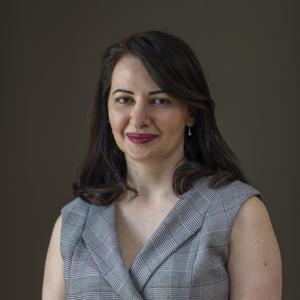Not just numbers: Syrian families identify their needs and concerns as war enters tenth year
02 July 2020
- Education in high demand: Syrian families say education for children greatest challenge.
The war on children in Syria has been one of the most brutal in recent history. Nearly 6 million Syrian children were born since the crisis began. They know nothing but war and displacement. On average, a child in Syria has been killed every 10 hours due to violence, and more than 2.5 million children have been uprooted and forced to flee to neighbouring countries in search of safety.
Syrians, however, are not just numbers. They have voices and opinions and these voices should not go unnoticed nor unheard.
UNICEF adopted results from a recently conducted Gallup International/ORB International opinion survey. The face-to-face survey asked Syrian people in Syria, Jordan and Lebanon about the greatest challenges and concerns they and their children face nearly a decade since the war began.
Covering 3,500 Syrians, the survey aims to give voice to Syrian families highlighting the impact of war and conflict and help shaping how to best respond to the needs that families identified moving forward.
“In this survey, Syrians tell us how the war has affected their lives firsthand and the lives of their children and simply how they survived one of the most brutal wars in recent history.” said Ted Chaiban, UNICEF Regional Director for UNICEF in the Middle East and North Africa. “It is obvious that the wounds run deep and that the impact on the mental health of Syrians is tremendous. We also know from this survey that education for children and poverty are among the top concerns and key challenges” he added.
According to the survey
- Syrians everywhere stated that children paid the heaviest price in this conflict.
- Psychological damage and impact on mental health was identified as being as severe as physical wounds.
- Most Syrians surveyed have experienced first-hand displacement, injury or the death of a loved one.
- Syrians living inside Syria tend to be more optimistic about the future of Syria’s children than those living in neighbouring countries. Families with children tend to be significantly less optimistic than those without.
- Education was identified as the biggest challenge for families in Syria, followed by poverty, access to healthcare and care for orphans.
- When asked about top priorities for children, people identified getting children back into education as a priority followed by access to health care and providing care for orphans.
While there are 2.8 million Syrian children out of school, nearly 5 million children inside Syria and in neighbouring countries continue to have access to learning against all odds. This is largely thanks to the efforts of teachers, education personnel, partners on the ground and with the generous support from UNICEF’s donors.
“As donors meet for another pledging conference for Syria in Brussels, we would like to thank all our donors for the unprecedented generosity. It played a huge role to help Syrian children continue their education. We ask donors to maintain their generosity towards the children of Syria and neighbouring countries so that children are able to catch up on lost years of education or continue their education. Now with COVID-19 partially disrupting informal education at some UNICEF-supported centres and child friendly spaces, large scale funding is more critical. This is fundamental for their future and the future of Syria” concluded Chaiban.
To continue providing Syrian children with critical assistance, UNICEF currently needs US$682 million for programmes inside Syria and in neighbouring countries.
Key findings of the survey
- Gallup International/ORB conducted a survey inside Syria in early 2020. The nationwide survey covered all 14 governorates, using face-to-face interviews with 2,552 people living in Syria. A similar survey was conducted in Lebanon and Jordan among Syrian refugees with 1,000 interviews.
- The survey was done before the confirmation of COVID-19 cases in the three countries.
Inside Syria
- For Syrian families, education is an urgent need: more than one third (35 per cent) of Syrian families identified quality of education and 23 per cent identified access to education to be among the greatest challenges for their children.
- Nearly 90 per cent stated that children are the greatest victims of the conflict
- Nearly 93 per cent of families, stated that psychological wounds and impact on children’s mental health are as serious as physical wounds
- People with children are significantly less optimistic about the future for Syrian children, compared to those without children or those who have not been personally affected
- More than half the people surveyed inside Syria reported that one of their family members were injured through the conflict
In Jordan and Lebanon
- More than two thirds (65 per cent) of Syrians living in Jordan and nearly half (47 per cent) of Syrians living in Lebanon saw that getting children back in full time education as soon as the conflict ends as a top priority
- Nearly all Syrian refugees surveyed stated that psychological wounds and impact on mental health are as serious as physical wounds
- More than one third reported that one of their family members was injured through the conflict






